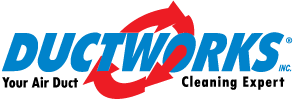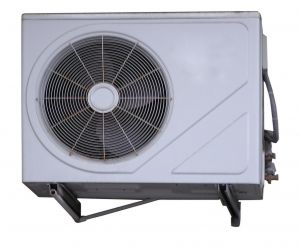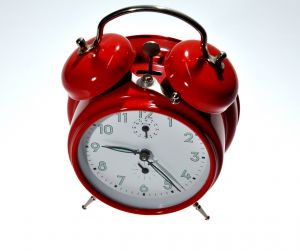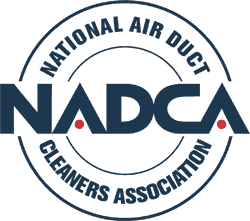 The EPA offers consumers advice about when to get their air ducts clean, how to choose a provider, and qualities to avoid in providers. The EPA does not certify air duct cleaners, so the consumer is responsible for conducting their own research.
The EPA offers consumers advice about when to get their air ducts clean, how to choose a provider, and qualities to avoid in providers. The EPA does not certify air duct cleaners, so the consumer is responsible for conducting their own research.
What is Air Duct Cleaning?
Duct cleaning generally refers to the cleaning of various heating and cooling system components of forced air systems, including the supply and return air ducts and registers, grilles and diffusers, heat exchangers heating and cooling coils, condensate drain pans (drip pans), fan motor and fan housing, and the air handling unit housing.
How do Air Ducts Become Dirty?
If not properly installed, maintained, and operated, HVAC components may become contaminated with particles of dust, pollen or other debris. If moisture is present, the potential for microbiological growth (e.g., mold) is increased and spores from such growth may be released into the home’s living space. Some of these contaminants may cause allergic reactions or other symptoms in people if they are exposed to them.
What to expect from an Air Duct Cleaning Service Provider
If you decide to have your heating and cooling system cleaned, it important to make sure the service provider agrees to clean all components of the system and is qualified to do so.
- Open access ports or doors to allow the entire system to be cleaned and inspected.
- Inspect the system before cleaning to be sure that there are no asbestos-containing materials (e.g., insulation, register boots, etc.) in the heating and cooling system. Asbestos-containing materials require specialized procedures and should not be disturbed or removed except by specially trained and equipped contractors.
- Use vacuum equipment that exhausts particles outside of the home or use only high-efficiency particle air (HEPA) vacuuming equipment if the vacuum exhausts inside the home.
- Protect carpet and household furnishings during cleaning.
- Use well-controlled brushing of duct surfaces in conjunction with contact vacuum cleaning to dislodge dust and other particles.
- Use only soft-bristled brushes for fiberglass duct board and sheet metal ducts internally lined with fiberglass. (Although flex duct can also be cleaned using soft-bristled brushes, it can be more economical to simply replace accessible flex duct.)
- Take care to protect the duct work, including sealing and re-insulating any access holes the service provider may have made or used so they are airtight.
- Follow NADCA’s standards for air duct cleaning and NAIMA’s recommended practice for ducts containing fiber glass lining or constructed of fiber glass duct board.
The EPA offers consumers advice about when to get their air ducts clean, how to choose a provider, and qualities to avoid in providers. The EPA does not certify air duct cleaners, so the consumer is responsible for conducting their own research.
What is Air Duct Cleaning?
Duct cleaning generally refers to the cleaning of various heating and cooling system components of forced air systems, including the supply and return air ducts and registers, grilles and diffusers, heat exchangers heating and cooling coils, condensate drain pans (drip pans), fan motor and fan housing, and the air handling unit housing.
How do Air Ducts Become Dirty?
If not properly installed, maintained, and operated, HVAC components may become contaminated with particles of dust, pollen or other debris. If moisture is present, the potential for microbiological growth (e.g., mold) is increased and spores from such growth may be released into the home’s living space. Some of these contaminants may cause allergic reactions or other symptoms in people if they are exposed to them.
What to expect from an Air Duct Cleaning Service Provider
If you decide to have your heating and cooling system cleaned, it important to make sure the service provider agrees to clean all components of the system and is qualified to do so.
Open access ports or doors to allow the entire system to be cleaned and inspected.
Inspect the system before cleaning to be sure that there are no asbestos-containing materials (e.g., insulation, register boots, etc.) in the heating and cooling system. Asbestos-containing materials require specialized procedures and should not be disturbed or removed except by specially trained and equipped contractors.
Use vacuum equipment that exhausts particles outside of the home or use only high-efficiency particle air (HEPA) vacuuming equipment if the vacuum exhausts inside the home.
Protect carpet and household furnishings during cleaning.
Use well-controlled brushing of duct surfaces in conjunction with contact vacuum cleaning to dislodge dust and other particles.
Use only soft-bristled brushes for fiberglass duct board and sheet metal ducts internally lined with fiberglass. (Although flex duct can also be cleaned using soft-bristled brushes, it can be more economical to simply replace accessible flex duct.)
Take care to protect the duct work, including sealing and re-insulating any access holes the service provider may have made or used so they are airtight.
Follow NADCA’s standards for air duct cleaning and NAIMA’s recommended practice for ducts containing fiber glass lining or constructed of fiber glass duct board.
 Local Air Duct Cleaning Company in Denver Post
Local Air Duct Cleaning Company in Denver Post

 The EPA offers consumers advice about when to get their air ducts clean, how to choose a provider, and qualities to avoid in providers. The EPA does not certify air duct cleaners, so the consumer is responsible for conducting their own research.
The EPA offers consumers advice about when to get their air ducts clean, how to choose a provider, and qualities to avoid in providers. The EPA does not certify air duct cleaners, so the consumer is responsible for conducting their own research. Air conditioning units require regular maintenance to keep them working at an optimal level. Follow these guidelines to ensure your air conditioner is working efficiently.
Air conditioning units require regular maintenance to keep them working at an optimal level. Follow these guidelines to ensure your air conditioner is working efficiently. You may have heard about having your air ducts cleaned, but how do you know if you need to? Here are a few tips to help you decide if the time is right for you to clean you air ducts.
You may have heard about having your air ducts cleaned, but how do you know if you need to? Here are a few tips to help you decide if the time is right for you to clean you air ducts.
 The National Air Duct Cleaners Association (NADCA) was formed in 1989 as a non-profit association of companies engaged in the cleaning of HVAC systems. Its mission was to promote source removal as the only acceptable method of cleaning and to establish industry standards for the association.
The National Air Duct Cleaners Association (NADCA) was formed in 1989 as a non-profit association of companies engaged in the cleaning of HVAC systems. Its mission was to promote source removal as the only acceptable method of cleaning and to establish industry standards for the association.
 Cleaning your air ducts is not part of regular air conditioning and heating maintenance. The cost can vary greatly depending on the size of the unit, accessibility, and overall level of dirt.
Cleaning your air ducts is not part of regular air conditioning and heating maintenance. The cost can vary greatly depending on the size of the unit, accessibility, and overall level of dirt. Hiring a qualified air duct cleaner is important because a poor job can actually make indoor air quality worse. If you are concerned with healthy indoor air, make sure to ask potential air ducts cleaners the following questions.
Hiring a qualified air duct cleaner is important because a poor job can actually make indoor air quality worse. If you are concerned with healthy indoor air, make sure to ask potential air ducts cleaners the following questions.